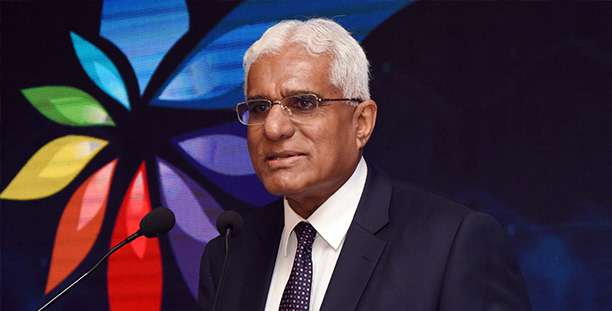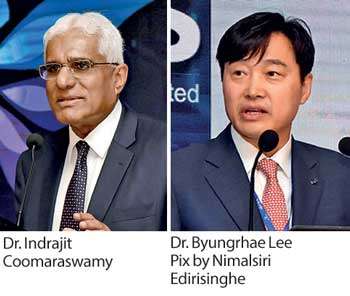Reply To:
Name - Reply Comment

 By Shabiya Ali Ahlam
By Shabiya Ali Ahlam
The Central Bank yesterday assured the country’s financial services sector that it would not stand in the way of progress with its controls, but asserted it will closely monitor the processes to ensure the progress achieved does not lead to disruption and undermine the whole system.
The Central Bank Governor Dr. Indrajit Coomaraswamy yesterday acknowledged that fintech innovations are becoming a “necessary norm” as financial services become more digitized. However, he noted that the Central Bank, the banking and finance sector regulator is faced with the challenge of bringing customers and the providers onto one platform without disturbing the sector’s stability.
“As a regulator, the Central Bank is faced with the challenge of promoting technological advancement, and at the same time doing so in a manner that is not disruptive and ensures the stability of the financial sector. This is more complex than it sounds,” Governor Coomaraswamy told the 22nd Annual General Meeting of the Asia-Pacific Central Securities Depository Group (ACG) in Colombo yesterday.
Although fintech increases the potential of innovation in the financial services industry, the forum highlighted that the risk associated with it essentially comes from outside the industry.
“Their (IT solution providers) strength is in IT enabled solutions; however, they need to enhance their knowledge on regulatory requirements when they develop their application. It is essential this gap is addressed,” he stressed while pointing out that the core priorities of the financial sector are stability and safety of public funds.
The Governor asserted that as technology advances, it is important the rules of the game are clearly established.
“We are supportive of fintech innovation, but we are also cognizant of the regulatory challenges they hold,” noted Coomeraswamy.
Meanwhile, reflecting similar sentiments was ACG Executive Committee Chairman Dr. Byungrhae Lee, who stressed the need to be cautious of cyber attacks when developing new services. “The fact that multi layers of intermediaries are involved in facilitating transactions makes it challenging to remain protected at all times.” Dr. Lee professed that as technology continues to advance, the more alert and prepared institutions and regulators need to be if the advancement is to be reaped
and enjoyed.
“It is important that we have our own interpretation on the current situation and adjust ourselves to the changes accordingly. The problem is that we could be tempted to be complacent, and that is why we must be connected,” he said.
Wants corporates to find new dividend payment method
As Sri Lanka is looking at advancing the manner in which financial transaction are taking place, the Central Bank (CBSL) yesterday urged the Colombo Stock Exchange (CSE) to do away with paying dividends through cheques and explore new avenues.
Pointing out that there is a high volume of cheques issued by CSE’s listed companies to pay dividends even for small values, it stressed the need to urgently do away with the practice.
“We encourage and suggest to the CSE to consider the possibility of adapting to the use of electronic payment methods currently available when making dividend payments,” Central Bank Governor Indrajit Coomaraswamy said.
A worldwide survey by NASDAQ revealed that three quarter of the financial sector infrastructure operators are working on adapting distributed ledger technology pilots or are already using newer technology.
The Australian stock exchange was the first major bourse to replace its infrastructure with distributed ledger technology.
Dr. Coomaraswamy suggested Sri Lanka too should consider similar options.
Meanwhile, he shared that a committee has been appointed to look at possible ways of reducing the usage of cheques in the country.